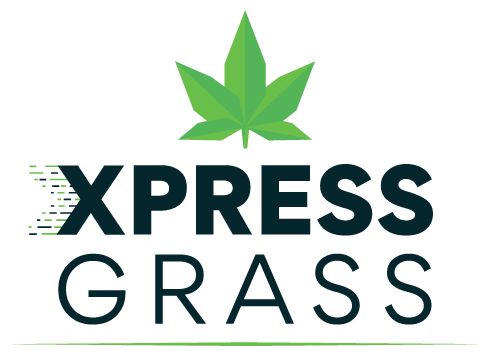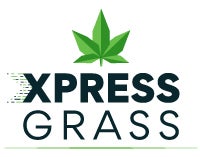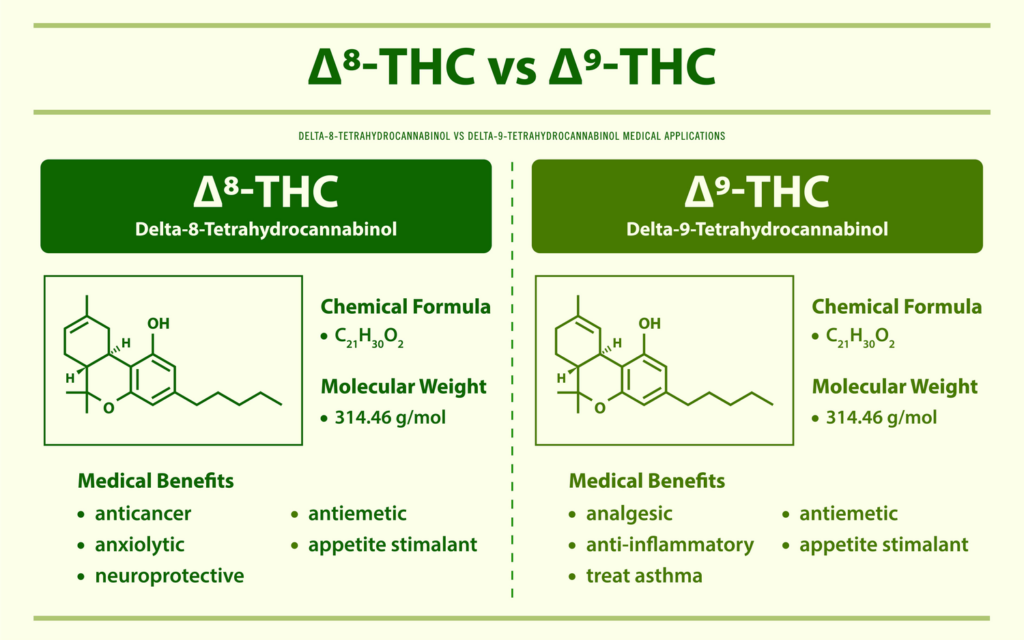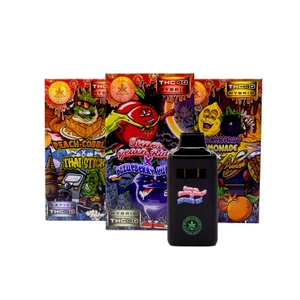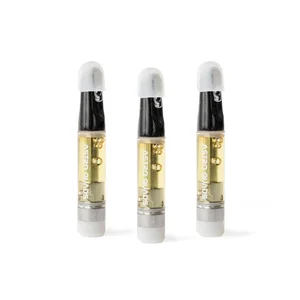Table of Contents
- What Is Delta 8 THC?
- Difference Between Delta-8 & Delta-9
- Benefits of Delta-8
- Negatives
- Legality
- Delta 8 THC Canada
- Conclusion – Delta 8 in Canada
- FAQ
Have you heard about the new kid in town? It’s called delta-8 THC. This new chemical compound has quickly gained popularity in the medical cannabis community. It’s been touted as a new and improved version of THC, but what exactly is delta-8 THC?
Generally, it’s sold as an edible or a vape product, and the high you get from it reportedly feels like a mellow version of the old-fashioned pot.
The only problem is that many people don’t know exactly what it is and how it works. To help clear things up, we’ll explore what delta 8 THC is, how it works, and why it has taken the cannabis industry by storm.
What Is Delta 8 THC?
The mildly euphoric delta-8 THC is an isomer of the psychoactive delta-9 THC. Delta-8 THC is typically made from cannabidiol taken from hemp.
The process produces a lot of delta-8 THC and small quantities of other cannabinoids and certain by-products. But not much is known about how these impurities affect health. Chemists haven’t even identified these impurities yet.
Delta-8 THC is relatively similar to delta-9 THC, a cannabis plant compound that gives users a “high.” It’s what most people usually mean when they talk about THC. Despite delta-8’s similarities to delta-9, its slightly different structure makes it less potent. How so?
Difference Between Delta-8 & Delta-9
Delta-8 is an isomer of delta-9, meaning it has a similar chemical formula but with a different atom arrangement. In other words, delta-8 and delta-9 are different because they have different molecular structures.
The only difference between them is how their molecules are arranged, which explains why they have different psychoactive properties.
Delta 8 THC Is Non-Psychoactive
This means delta-8 won’t cause the same type of high as delta-9. It’s similar to CBD’s effects when taken for medical purposes. So if you’re looking for a high, you’ll need to stick with delta-9.
In fact, others call delta-8 “diet weed” or “marijuana-lite.” Its side effects include less potent anxiety, paranoia, and drowsiness.
Regulations on Delta-8 & Delta-9 THC
Because of delta-9’s psychoactive effects, it is highly regulated in states where legalization measures are in effect. However, many manufacturers of delta-8 products aren’t following specific regulations. So their products may not be free of adulterants or impurities and may not exactly contain what the label claims.
Benefits of Delta-8
Non-Psychoactive
Delta-8 THC is non-psychoactive, so it’s suitable for those who are looking for the medical benefits of THC without the psychoactive effects. It can be used to relieve various conditions and symptoms, including cancer, chronic pain, and seizure disorders, among others.
Higher Bioavailability
Although delta-8 doesn’t have many studies yet, it has a higher bioavailability than delta-9 THC. What does this mean? When consumed orally, the body absorbs more of its medicinal properties than it would if it’s vaped or smoked in its raw form.
Lower Potency
Like delta-9, the milder delta-8 version produces mild feelings of euphoria, potential pain relief, and relaxation. A lower potency may also benefit people who do not want a strong “high.” Unfortunately, researchers know very little about the risks associated with delta-8 THC and whether they outweigh its benefits.
Negatives
Because delta 8 is quite similar to delta 9 THC, it produces some of the same side effects, such as:
- Anxiety
- Dry mouth
- Red eyes
- Rapid heart rate
- Coordination problems
- Memory loss
- Slower reaction time
And since delta-8 THC is synthetically produced, you may not know what’s really in it. This means it comes with unknown risks, making it dangerous to use.
Also, an article published in Chemical & Engineering News says that delta-8 products may contain both delta-9 and delta-10 THC, which have little known effects. This means using a delta-8 product can be dangerous and unpredictable because of the unknown effects and risks.
While experts say these compounds won’t probably produce ill effects, they’re still unsure whether the by-products, including synthetic ones, are perfectly safe to consume.
Legality 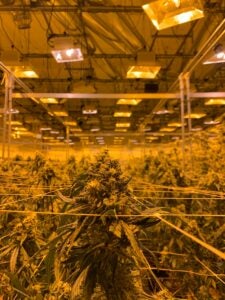
Delta 8 THC is legal in Canada but illegal in most US states and countries. The status of THC-based products varies by state, so you must know the laws in your area before using delta-8.
Delta 8 THC Canada
In Canada, delta 8 THC is definitely legal under federal law. In fact, both types of cannabis (marijuana and hemp) were made legal in 2018. This means that products made from cannabis are legal, including those with known psychoactive effects. And since delta 8 THC is a cannabis derivative, it’s protected by the country’s laws.
Unlike the US, Canada has thorough regulations that cover the production and sale of cannabis products. Legalizing cannabis created a system in the country in which companies must apply to the state to market all cannabis products legally.
Delta 8 THC in the US
The 2018 Farm Bill made it legal to grow hemp with less than 0.3% delta-9 THC. This means there is a gray area at the federal level for products with more delta-8 THC, as long as they’re derived from hemp with less than 0.3% delta-9 THC by dry weight.
However, hemp plants don’t have a lot of delta-8 THC on their own. So delta-8 is mostly produced by synthetically converting CBD or delta-9 THC to delta-8 THC, which is against the law. Also, some state laws make it illegal to sell products that have both delta-8 and delta-9 THC in them.
And as hemp farmers have learned to extract CBD and promote it as a cure-all since the bill’s approval in 2018, delta-8 THC’s popularity has skyrocketed.
The Delta-8 THC Craze
An oversupply of cannabidiol extracted from American-grown hemp has driven down the price of CBD. This led producers to look for new ways to make money from their crops. And one way is to convert CBD into delta-8 THC. Thus, delta-8 THC has become a popular product for producers of hemp-derived CBD.
But there’s a problem: it’s still illegal in most states and countries. And while delta-8 THC is legal in Canada, it hasn’t been approved by the FDA as safe or effective in any context.
Effects of D8
Like any other compound, taking in more delta-8 THC than your body needs or wants can have some short-term negative effects. The severity of these bad side effects often depends on how much delta-8 is taken.
Some of the short-term negative effects of taking too much delta-8 THC are:
- Disorientation
- Lethargy
- Anxiety and panic attacks
- Dry eyes and mouth
- Poor coordination
- Increased heart rate
But some of these unpleasant side effects go away within a couple of hours after inhalation and after several hours of edible consumption.
Also, people with preexisting health conditions may face risks that others do not. Overconsumption of delta-8 THC could make psychosis more intense or worse in people who are at high risk for it or have already been diagnosed with the condition. And when too much delta-8 THC is smoked, it could cause heart problems.
Conclusion – Delta 8 in Canada
Delta-8-THC is a relatively new product on the market with a lot of potential. But it is only legal in Canada and other countries that have approved its use.
Although delta-8 THC provides users with certain health benefits, including pain relief, stress reduction, and even improved moods, the product is still fairly new, and its benefits and risks have not been fully studied.
The lack of research on delta-8 THC-infused products makes it hard to determine how well they work and what the side effects might be. And when there’s little information available about a product, it’s hard to know whether or not it will be safe.
Right now, most of the available information about delta-8 THC is anecdotal in nature, which means that there isn’t much scientific evidence to back up its claims of effectiveness.
FAQ – Delta-8 Canada
Is Delta-8 Legal in Canada?
Since October 2019, amendments and addendums to Canada’s legalisation of cannabis have made it permissible to buy and use products with delta-8 THC. But restrictions on goods that contain D8 are also in place.
Is Delta-8 the Same as THC?
THC comes in the form of delta-8. But when people say “THC,” they usually mean “delta-9,” which is found in high concentrations in weed. Both can make you feel fuzzy and euphoric, but delta-8 tends to be less intense.
Is Delta-8 THC Safe?
Scientists don’t know much about how delta-8 affects the body because there haven’t been many clinical studies done on it yet. All of these reports are just anecdotes, not well-designed clinical trials. So it can be hard to say for sure if delta-8 is safe or how it might impact people with certain health problems.
Is Delta-8 Natural or Synthetic?
Most commercially produced delta-8 THC products are synthetically made from CBD or delta-9 THC.
What Does Delta-8 THC Feel Like?
Like delta-9 THC, delta-8 induces feelings of euphoria, relaxation, and potential pain relief, but a lot milder.
Can You Overdose on Delta-8 Edibles?
No official records have been reported on a delta-8 THC overdose, but consuming too much can lead to unpleasant side effects.
References
US Food and Drug Administration – 5 Things to Know About Delta-8 THC https://www.fda.gov/consumers/consumer-updates/5-things-know-about-delta-8-tetrahydrocannabinol-delta-8-thc
Chemical & Engineering News – Delta-8-THC Craze Concerns Chemists https://cen.acs.org/biological-chemistry/natural-products/Delta-8-THC-craze-concerns/99/i31
US Food and Drug Administration – Hemp Production and the 2018 Farm Bill https://www.fda.gov/news-events/congressional-testimony/hemp-production-and-2018-farm-bill-07252019
Addiction – Unknown risks of psychosis and addiction with delta-8-THC: A call for research, regulation, and clinical caution. https://pubmed.ncbi.nlm.nih.gov/35322899/
Practical Cardiology – Marijuana Screening Recommended for Cardiovascular Disease https://www.practicalcardiology.com/view/marijuana-screening-recommended-cardiovascular-disease
